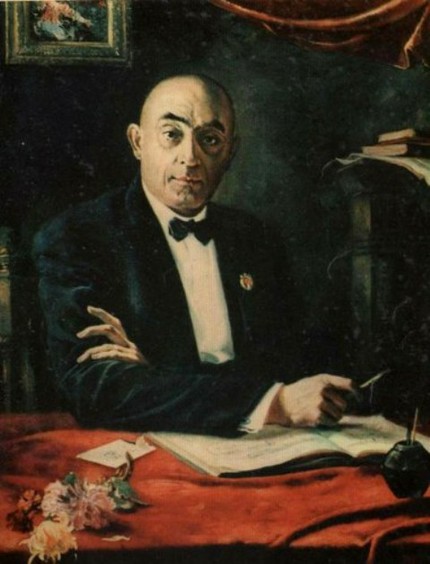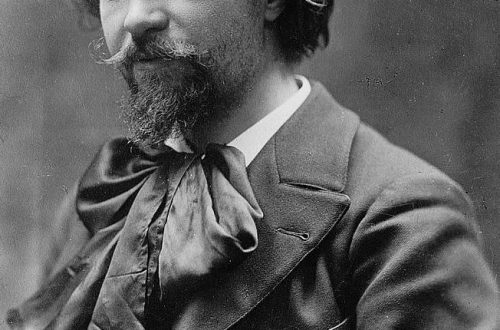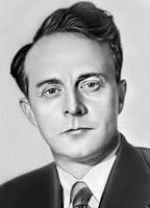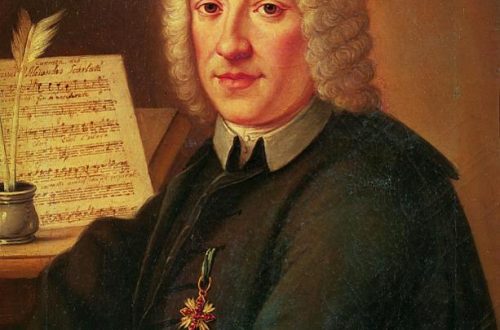
Zakhary Petrovych Paliashvili (Zachary Paliashvili) |
Zachary Paliashvili

Zakhary Paliashvili was the first in professional music to open the secrets of the centuries-old musical energy of the Georgian people with amazing force and scale and return this energy to the people… A. Tsulukidze
Z. Paliashvili is called the great classic of Georgian music, comparing his significance for Georgian culture with the role of M. Glinka in Russian music. His works embody the spirit of the Georgian people, filled with love of life and indomitable desire for freedom. Paliashvili laid the foundations of a national musical language, organically combining the style of various types of peasant folk songs (Gurian, Megrelian, Imeretian, Svan, Kartalino-Kakhetian), urban folklore and artistic means of the Georgian choral epic with the compositional techniques of Western European and Russian music. Especially fruitful for Paliashvili was the assimilation of the richest creative traditions of the composers of The Mighty Handful. Being at the origins of Georgian professional music, Paliashvili’s work provides a direct and living link between it and the Soviet musical art of Georgia.
Paliashvili was born in Kutaisi in the family of a church chorister, 6 of whose 18 children became professional musicians. From early childhood, Zachary sang in the choir, played the harmonium during church services. His first music teacher was the Kutaisi musician F. Mizandari, and after the family moved to Tiflis in 1887, his elder brother Ivan, later a famous conductor, studied with him. The musical life of Tiflis proceeded very intensively in those years. Tiflis branch of the RMO and the music school in 1882-93. headed by M. Ippolitov-Ivanov, P. Tchaikovsky and other Russian musicians often came with concerts. An interesting concert activity was conducted by the Georgian Choir, organized by the enthusiast of Georgian music L. Agniashvili. It was during these years that the formation of the national school of composers took place.
Its brightest representatives – young musicians M. Balanchivadze, N. Sulkhanishvili, D. Arakishvili, Z. Paliashvili start their activity with the study of musical folklore. Paliashvili traveled to the most remote and hard-to-reach corners of Georgia, recording approx. 300 folk songs. The result of this work was subsequently published (1910) a collection of 40 Georgian folk songs in folk harmonization.
Paliashvili received his professional education first at the Tiflis Musical College (1895-99) in the class of horn and music theory, then at the Moscow Conservatory under S. Taneyev. While in Moscow, he organized a choir of Georgian students that performed folk songs in concerts.
Returning to Tiflis, Paliashvili launched a stormy activity. He taught at a music school, in a gymnasium, where he made up a choir and a string orchestra from students. In 1905, he took part in the founding of the Georgian Philharmonic Society, was director of the music school at this society (1908-17), conducted operas by European composers staged for the first time in Georgian. This enormous work continued after the revolution. Paliashvili was a professor and director of the Tbilisi Conservatory in different years (1919, 1923, 1929-32).
In 1910, Paliashvili began work on the first opera Abesalom and Eteri, the premiere of which on February 21, 1919 became an event of national significance. The basis for the libretto, created by the famous Georgian teacher and public figure P. Mirianashvili, was the masterpiece of Georgian folklore, the epic Eteriani, an inspired poem about pure and sublime love. (Georgian art has repeatedly appealed to him, in particular the great national poet V. Pshavela.) Love is an eternal and beautiful theme! Paliashvili gives it the scale of an epic drama, taking the monumental Kartalo-Kakhetian choral epic and Svan melodies as the basis for its musical embodiment. Expanded choral scenes create a monolithic architectonics, evoking associations with the majestic monuments of ancient Georgian architecture, and ritual spectacles are reminiscent of the traditions of ancient national festivities. Georgian melos permeates not only music, creating a unique color, but also assumes the main dramatic functions in the opera.
On December 19, 1923, the premiere of Paliashvili’s second opera Daisi (Twilight, lib. by the Georgian playwright V. Gunia) took place in Tbilisi. The action takes place in the 1927th century. in the era of the struggle against the Lezgins and contains, along with the leading love-lyrical line, folk heroic-patriotic mass scenes. The opera unfolds as a chain of lyrical, dramatic, heroic, everyday episodes, captivates with the beauty of music, naturally combining the most diverse layers of Georgian peasant and urban folklore. Paliashvili completed his third and last opera Latavra on a heroic-patriotic plot based on a play by S. Shanshiashvili in 10. Thus, the opera was at the center of the composer’s creative interests, although Paliashvili wrote music in other genres as well. He is the author of a number of romances, choral works, among which is the cantata “To the 1928th Anniversary of Soviet Power”. Even during his studies at the conservatory, he wrote several preludes, sonatas, and in XNUMX, based on Georgian folklore, he created the “Georgian Suite” for orchestra. And yet it was in the opera that the most important artistic searches were carried out, the traditions of national music were formed.
Paliashvili is buried in the garden of the Tbilisi Opera House, which bears his name. By this, the Georgian people expressed their deep respect for the classics of the national opera art.
O. Averyanova





